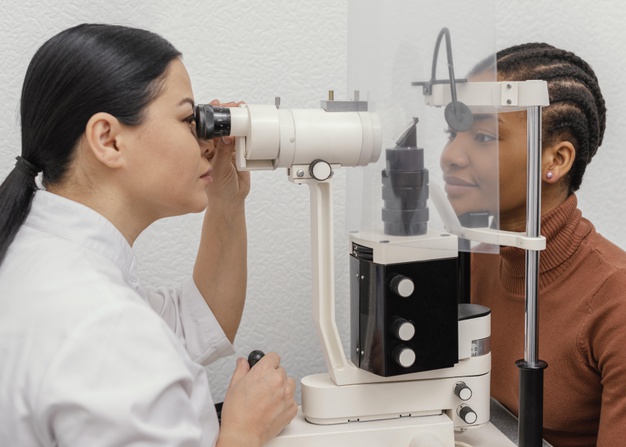Every year millions of individuals experience eye problems. There are some issues that result in permanent vision loss, whether some can be corrected with the help of glasses or contact lenses.
Research says that between the years 2010 and 2050, the number of individuals with eye diseases will double. And those eye diseases include glaucoma, diabetic retinopathy, cataracts, and AMD or Age-related Macular Degeneration.
Care For Your Eye In 5 Medically Proven Ways
So, from the above information, now it is clear that we need to take care of our vision. However, we also need to face the fact that with age, our vision will become poorer, but we need to make it healthy as much as possible.
1. Opt For Regular Eye Exams
Though your vision is fine and it seems that your eyes are functioning properly, there is only one option to be 100% sure. And only a medical expert can assure you of that. An eye test not only determines if there is any need for glasses, but it also helps to treat some eye diseases effectively if it is detected at an early stage.
Those who have crossed the age limit of 60 years must go through a comprehensive dilated eye exam in order to check whether there are any issues with the retina, macula, optic nerve or not. So, contact any ophthalmology clinic in dubai today.
2. Eat Right
Our health conditions majorly depend on what we eat. You may have heard thousands of times that eating carrots is good for your eye. But there are plenty more foods that will help you to have a healthier vision. Dark leafy greens like spinach, kale, collard greens have zeaxanthin and lutein.
These antioxidants prevent forming cataracts. A diet plan with grapes on it helps to prevent AMD and also keeps our retina clean. Tuna, sardines, mackerel, halibut, and salmon are enriched with omega-3 fatty acids, which are really beneficial for the eyes.
3. Wear Proper Protection
Apart from being a fashion accessory, there is a more important purpose of wearing sunglasses. Sunglasses protect our eyes from harmful UV or ultraviolet rays that are emitted by the sun. In 2016, the Vision Council published a report.
As per that, three-quarters of people in the United States were actually concerned about eye issues, which can arise from the UV rays. So, do not forget to put on sunglasses each time you are exposed to the sun. Also, whenever you are purchasing sunglasses, make sure that it blocks 99 to 100% of UVA and UVB radiations.
4. Give Your Eyes Rest Regularly
When we work all day sitting in front of a computer screen, we often forget to blink. And at the end of the day, we end up with fatigued eyes. Research says that by the year 2050, half of the world population will be short-sighted if things will go on like this.
There is a 20-20-20 rule for that. For every 20 minutes, which you are spending staring at a computer screen, look at any object for 20 seconds that is 20 feet away from you. This will reduce eye strain. You also can use some protective eyeglasses to keep your eyes healthy.
5. Keep Your Weight Under Control
Being obese or overweight will put you at high risk of developing diabetes or any other systematic disorder. This eventually may lead to loss of vision. No time is too late to put your weight under control.
So, develop healthy eating habits and also exercise daily in order to prevent any vision complications. The University of Melbourne in Australia has conducted research. Eye damages due to obesity, High blood pressure, and diabetes can be reversed by losing weight.
Final Tips
Follow all the above-mentioned tips to take proper care of your eyes. No one can deny the fact that as we’ll grow old, our vision will become weak, but you also need to keep it healthy as much as possible in the long run.






















